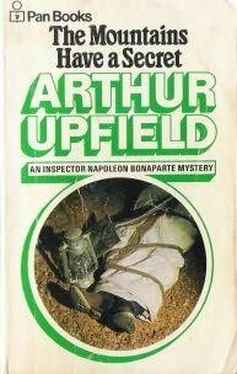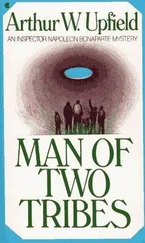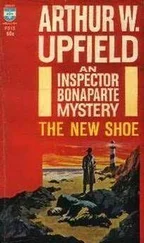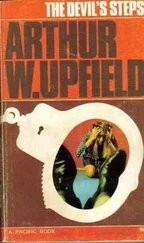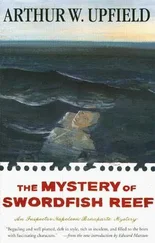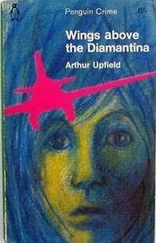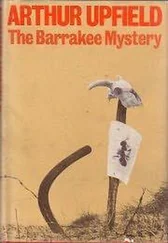Arthur Upfield - The Mountains have a Secret
Здесь есть возможность читать онлайн «Arthur Upfield - The Mountains have a Secret» весь текст электронной книги совершенно бесплатно (целиком полную версию без сокращений). В некоторых случаях можно слушать аудио, скачать через торрент в формате fb2 и присутствует краткое содержание. Жанр: Классический детектив, на английском языке. Описание произведения, (предисловие) а так же отзывы посетителей доступны на портале библиотеки ЛибКат.
- Название:The Mountains have a Secret
- Автор:
- Жанр:
- Год:неизвестен
- ISBN:нет данных
- Рейтинг книги:5 / 5. Голосов: 1
-
Избранное:Добавить в избранное
- Отзывы:
-
Ваша оценка:
- 100
- 1
- 2
- 3
- 4
- 5
The Mountains have a Secret: краткое содержание, описание и аннотация
Предлагаем к чтению аннотацию, описание, краткое содержание или предисловие (зависит от того, что написал сам автор книги «The Mountains have a Secret»). Если вы не нашли необходимую информацию о книге — напишите в комментариях, мы постараемся отыскать её.
The Mountains have a Secret — читать онлайн бесплатно полную книгу (весь текст) целиком
Ниже представлен текст книги, разбитый по страницам. Система сохранения места последней прочитанной страницы, позволяет с удобством читать онлайн бесплатно книгу «The Mountains have a Secret», без необходимости каждый раз заново искать на чём Вы остановились. Поставьте закладку, и сможете в любой момент перейти на страницу, на которой закончили чтение.
Интервал:
Закладка:
“You don’t know what kind of service?”
“Can’t even guess. That hotel man plays the organ, and sometimes someone or other sings. It’s all foreign to us.”
“All right,” Bony whispered. “Now I’ll be going. Dress in the dark and be ready. Have you your walking-shoes?”
“No. They took our shoes from us the day after they brought us here. Shoes! It’ll be weeks before we can wear shoes again after having had to wear slippers for months.”
Hands reached forward and became clasped over Bony’s hands gripping the bars.
“You’ll take care, won’t you?”
Bony chuckled encouragingly, and he said with a confidence he dared not mistrust:
“Don’t you worry. I’ll be all right. Anyway, there’s a friend of mine not very far away. I wonder if you know him. Which of you is Mavis Sanky?”
The hands upon his own pressed hard, and their owner gave the affirmative reply.
“His name is Glen Shannon.”
“Glen!” almost shouted the girl, and her friend hushed her and cried: “You always said your American would come looking for you, didn’t you?”
“Well, he has been looking for you, and you will see him soon. So both be good girls and obey orders, and don’t switch on your light or make any noise. I’ll get that key, but it may take time. Aurevoir!”
Relaxing his grip, he dropped to the ground, picked up the wire, and passed round to the front of the building.
Opposite was the observatory, two wide windows set very wide apart appearing as the eyes of a pagan idol emitting music instead of fire. To the left, the house, with its main entrance illumined by a porch light. The side door was open and he could see a small hall beyond.
Once again the shapeless shape danced through the corridors of the night. Bony located the hands’ quarters, a spacious building and empty of light. His nose located the paint and oil stores, and fire was the natural idea-association with oil. The door being unlocked, he entered, and with his fingers found a tapped drum of kerosene and an empty bucket which he filled from the drum. Diversionary tactics are easily executed, and with greater celerity, by the application of kerosene and a lighted match to a fodder stack.
One of the stacks was of oats, and it had been broken open. Loose straw was there, which he piled against the open cut and saturated with the kerosene. The ignited match could be applied if and when events decided the moment.
Everything he saw, even in the darkness, bespoke the wealth and the prosperity of the owner of Baden Park. There was no litter. Somewhere in the distance, removed that its noise would not disturb, hummed a powerful generating plant. The garage building contained seven stalls, each having an automatic door, whilst under one great iron roof was enough machinery to work a dozen ordinary farms.
Satisfied that he was now familiar with the scene of the probable battle to come, Bony drifted back to the observatory and discovered several points of interest. The building was square in shape, its thirty-feet high walls of granite blocks supporting the cupola, and its only doorway facing towards the house. The door was ajar. It was almost four inches thick and was fitted with heavy iron hinges reaching almost across its width, like the door of an old church. There was no keyhole and no fastening bolt. Near the left-hand corner a series of iron rungs gave access to the cupola, Bony assuming that when the telescope was installed certain mechanism required periodic attention.
As though to a time-table, people appeared in the main doorway of the house, and Bony skipped to the far side of the observatory and peered round the wall angle to watch the house party arrive. They walked slowly and solemnly, as people walk to church. The butler pushed open the door, stood aside, then went in last. The door was partly closed, leaving a five-inch ribbon of light to fall upon the ground.
The music faded into silence, and the enthralled Bony could hear the subdued voices within. They went on for perhaps a minute, when the organist began again to play and Heinrich emerged and went back to the house, where he switched off the exterior light over the main door, closed that door, and passed to the secondary or side door. Bony could see him cross what appeared to be a small hall and disappear beyond.
The organ produced sound like the wind in faraway trees, rising and falling, and gradually gaining in strength until it became the rolling drums of a funeral march.
He was tempted to steal to the door and peer within. What he might see was tearing his patience to shreds, but he could not risk discovery until he had removed the imprisoned girls to safety. He recognised the influence of the music, the stirring of his pulses, the arousing of emotion at the cost of caution. Himself no musician, he had to offer silent tribute to the organist, for the music was claiming him, touching him with its magic fingers, removing control of imagination.
The influence of the music was such that he did not see Heinrich until the butler had left the house, leaving the side door open, and was half-way to the observatory door. And then, instead of waiting, immediately the man had entered the observatory, Bony ran to the side door, turned to see if he had been observed, and went in through the doorway back first, snatching the key hanging from the nail.
Movement in the small hall spun him round to face a man who had entered from the passage beyond and now stood with astonishment in his steel-blue eyes at sight of the tattered and bootless Bonaparte. A yard only separated them.
Bony’s reactions came in sequence. First a feeling of annoyance with himself at not counting the men who had entered the observatory, for this man must have been one of the round dozen he had seen at table. Then followed the feeling of frustration, for, although he had the key, there was still the prison door to be opened without being observed, and other matters to attend to without his presence being noted. Nothing could be permitted to thwart the success of his plans.
The man regarding Bony was distinctly hostile. He took one pace nearer to him, and his right hand flashed upward into the left-hand side of his evening jacket. Voluntary action with him then ceased. The wire sword hissed and fell across his exposed wrist. He staggered back, raised his head to shout, and so exposed his throat to the bite of the wire.
There was no scream. Bony had him in his arms before he could collapse to the floor.
Chapter Twenty-six
The “Curtain”
GIVEN additional strength by the thought of the imminent return of Heinrich, he carried the body along the passage, stopped before one of the doors, opened it, and took the body into the dark interior of the room. He could hear the butler’s tread in the small hall, and he heard the man’s footsteps in the passage as without sound he closed the door.
The footsteps passed. In darkness Bony crouched over the dead man and relieved the body of a small-calibre automatic and a bulky pocket wallet, which he stowed inside his shirt. He found a bed, and under the bed he pushed the body.
The lowest notes of the organ reached him even there. They were like the slow heart-beats of a dying man. He thought of the organist, of the persons listening to the organ, of the two girls who had been flogged into domestic service, of two milk-white backs bloodied and scarred for life. He thought of Benson, cold, hard, and rigid, and of his sister, stiff and merciless.
The butler passed along the passage to the small hall, and Bony opened the bedroom door and peered round the frame to see the man leave the house. Slipping into the passage and closing the door, he raced to the hall, and from round the frame of the outer door watched the butler cross and enter the observatory. Twenty seconds later he was unlocking the padlock securing the bolt of the prison door.
Читать дальшеИнтервал:
Закладка:
Похожие книги на «The Mountains have a Secret»
Представляем Вашему вниманию похожие книги на «The Mountains have a Secret» списком для выбора. Мы отобрали схожую по названию и смыслу литературу в надежде предоставить читателям больше вариантов отыскать новые, интересные, ещё непрочитанные произведения.
Обсуждение, отзывы о книге «The Mountains have a Secret» и просто собственные мнения читателей. Оставьте ваши комментарии, напишите, что Вы думаете о произведении, его смысле или главных героях. Укажите что конкретно понравилось, а что нет, и почему Вы так считаете.
